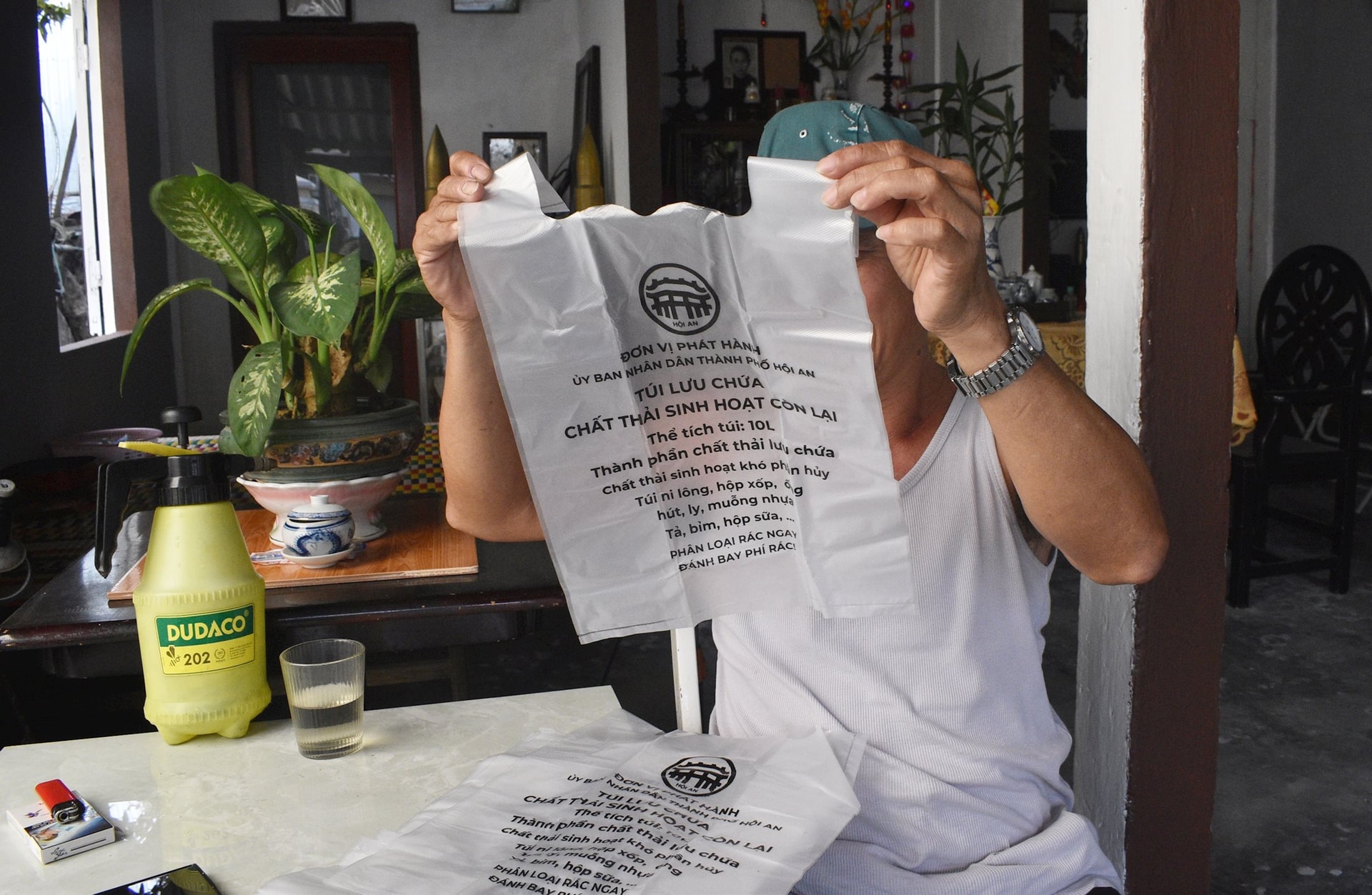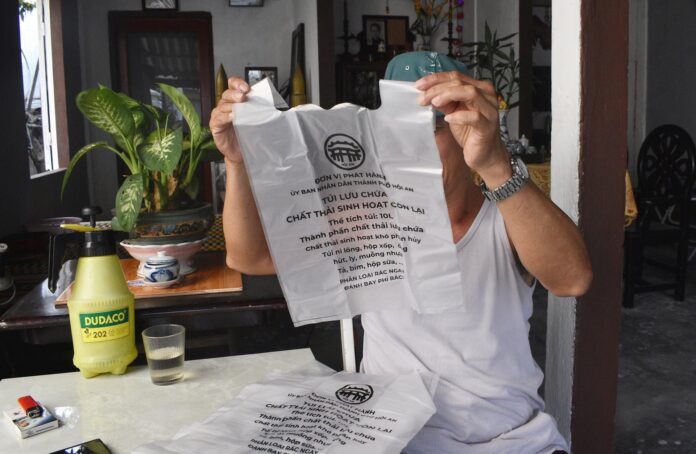From June 1st onwards, Ho Chi Minh City’s Decision 67 of 2025 on fees for solid waste collection, transportation, and treatment will officially take effect. Instead of a fixed fee per household as before, residents will now pay based on the volume or weight of their garbage.

Hoi An is the first locality to pilot garbage fee collection through selling bags to residents. Photo: Quang Nam Newspaper
However, this new regulation has also raised questions among residents about its calculation, implementation, and transparency.
Talking to NLD newspaper, Mr. Ho Kien Trung, Deputy Director of the Department of Environment (Ministry of Agriculture and Environment), said that the Environmental Protection Law of 2020 stipulates that garbage collection fees can be based on volume or weight. However, there are many ways to collect garbage fees, depending on the locality, as long as it ensures the principle of “pay as you throw.”
“Localities can sell garbage bags with specified weight limits or use other methods,” said Mr. Trung.
Regarding the concern of whether garbage will still be collected if residents do not have the required garbage bags, the Deputy Director of the Environment Administration shared that in many countries, garbage that does not meet the requirements will not be collected. In Vietnam, the decision on sanctions to ensure the garbage collection process will be made by the localities to ensure the most effective implementation.
For example, regarding the collection of garbage fees through the sale of garbage bags, Mr. Trung said that the People’s Committees of provinces and cities will order bags of specific sizes, packaging, and prices to prevent counterfeiting. The Ministry of Agriculture and Environment does not intervene or regulate this.
“The price of garbage collection based on volume or weight, as well as the units responsible for bag production, collection, and transportation, are decided by the localities,” he said. According to him, this is an important step in changing behaviors, promoting waste sorting, and reducing waste generation at the source.
Hoi An City, Quang Nam Province, in 2024, was the first locality in the country to pilot the regulation on prices for solid waste collection, transportation, and treatment from households and individuals, aiming to move towards a waste fee scheme based on volume or weight before 2025.
Accordingly, to convert the sanitation fee, each month, the locality will sell each household and business a number of garbage bags of different volumes, such as 10-liter plastic bags priced at nearly VND 1,900, 15-liter bags at VND 5,000, 20-liter bags at VND 7,500, 30-liter bags at VND 10,000, and 40-liter bags at VND 15,000.
With an average collection of VND 30,000/household as before, each household will now buy garbage bags equivalent to that amount. VND 30,000 can buy 16 bags of 10 liters, 6 bags of 15 liters, or 4 bags of 20 liters.
Unlocking the Solution to the $10-Billion Flood Prevention Project
The $426 million project aimed at tackling flood control in Ho Chi Minh City, taking into account climate change factors, has faced setbacks and delays over the past five years. In light of this, the Ministry of Finance has recently submitted a proposal to the Government, recommending the issuance of a resolution to address the challenges and expedite the completion and effectiveness of this important project.
Affordable Housing: Making Homes Accessible to Low-Income Earners
“To catalyze the development of social housing, experts emphasize the need to focus on core elements such as land allocation, credit support, and streamlined investment procedures. Accurate and comprehensive consideration of land acquisition costs is also vital.”





















